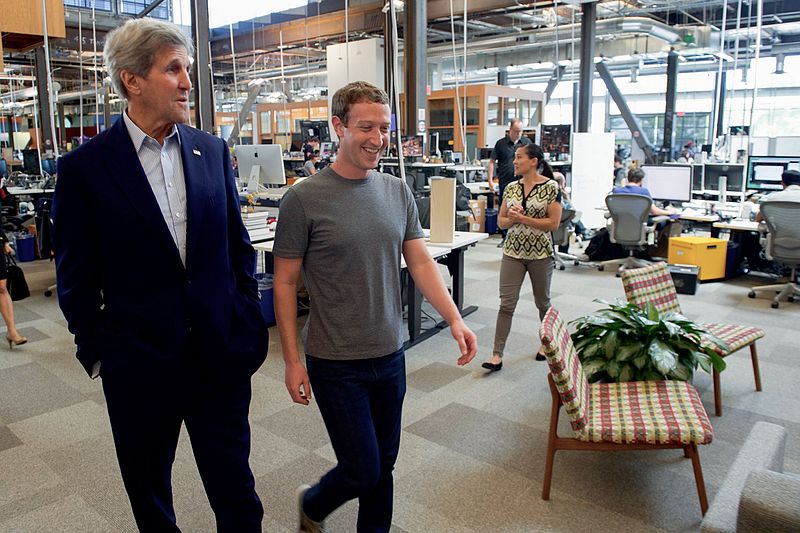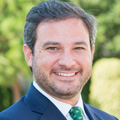
I recently participated in a panel at a Labor Day event organized by the UGT (a socialist labor union) here in Barcelona. We were discussing the future of work in Industry 4.0, and the point I made was: in the face of change, the question regarding what is essential, what should not, or perhaps cannot, change is of paramount importance. So in this case: What is work? And is it intrinsically good? To put it another way: If we could provide income to cover the personal, familial and leisure needs of a wide swath of people whose jobs have been eliminated by technology, would that be desirable?
This question is crucial, and was given a clear answer by Yuval Harari, a guru of Silicon Valley visionaries including Mark Zuckerberg and author of the much-acclaimed book Homo Deus. In a recent piece in The Guardian, Harari wrote that jobs will certainly be destroyed. He thinks that’s not, however, terrible news since humans have always found alternative ways of creating meaning in their lives through what he calls forms of “virtual reality” — i.e. artificially constructed narratives and games such as religion. So, a combination of universal basic income and highly realistic forms of virtual reality could satisfy that thirst for meaning.
Some days ago, Zuckerberg gave an astute commencement speech at — guess where? — Harvard, the university from which he never graduated. The Facebook CEO rightfully addressed the need for purpose, and the challenges to building purpose in a world in which jobs are being transformed (if not altogether wiped out), community bonds are weakening, and inequality is growing. With an idealistic tone, Zuckerberg challenged his generation of millennials to come up with a new social contract. He called for a society in which everyone has the opportunity to create purpose and to pursue it, guaranteed a cushion provided by universal basic income. Of course, entrepreneurial initiative is depicted as the quintessential purpose-creating activity, with its trial and error dynamism.
But let’s get back to my audience of somewhat less sophisticated manufacturing workers. To my philosophical questions someone intervened: “Abandon work? That would be the end of our Judeo-Christian civilization! The Bible says: You will work by the sweat of your brow.” I was surprised — and pleased — by that profound observation which went straight to my point. I had to complete his reference, remembering that the book of Genesis affirms “the Lord God took the man and put him in the Garden of Eden to work it and keep it”. It was only after what theology calls “original sin” that the burden of sweat and toil was placed on our shoulders; a symbolic explanation of the ambivalent nature of work, capable of making us and our communities flourish and of alienating us.
“Without work, without work for all, there will be no dignity for all”
Surprisingly, Pope Francis jumped into this debate last week, addressing the same issues almost word for word while answering the questions of working people during an encounter in Genoa. The questions highlighted the economic angst of our times: uncertainty about the future, unemployment, low wages, unending working hours, work/family life imbalance, etc. The answers, deeply held convictions, stemmed from the Pope’s experience and — yes — the Bible.
Pope Francis also called for a new social contract, in language resembling that of Zuckerberg and many others. He would obviously praise Zuckerberg’s appeal to create purpose and meaning —though Francis would say finding purpose, I suppose. However, he was specific about a point he has made at other times:
Men and women are fed through work: by work they are “anointed with dignity”. For this reason, the entire social pact is built around work. This is the core of the problem, because when you do not work or you work badly, you work little or you work too much, it is democracy that enters into crisis, and the entire social pact.
Make no mistake, he showed awareness as to what technology might bring in terms of working conditions and had no regrets about it. However, he extracted conclusions from this premise that question the universal basic income approach typical of technological visionaries:
It is therefore necessary to look without fear, but with responsibility, at the technological transformations of the economy and life, and not to be resigned to the ideology that is gaining ground everywhere, that imagines a world where only half or maybe two-thirds of the workers will work and the others will be maintained by social subsidies. It must be clear that the real goal to reach is not that of “income for all” but rather “work for all”. Because without work, without work for all, there will be no dignity for all.
The crucial issue again is the question about the nature of work, its essence. As the Pope affirms:
The work of today and that of tomorrow will be different, perhaps very different – we think of the industrial revolution, there was a change; here too there will be a revolution – it will be different from yesterday’s work, but it will have to be work, not pension, not retirement: work.
It seems there is something specific to work as a source of meaning and dignity, which is different from a merely instrumental way of making a living, or at the other extreme, as a way to express individuality.
In his responses, Francis seems to point to a trio of elements, which are usually considered separately: work is a service to others, individuals and communities; work demands sacrifice and effort; and work must include a measure of human creativity and freedom.
Francis wasn’t at our talk at the UGT that day, but I think the audience of workers, just by discussing this issue in an open way, came out with very similar conclusions.


